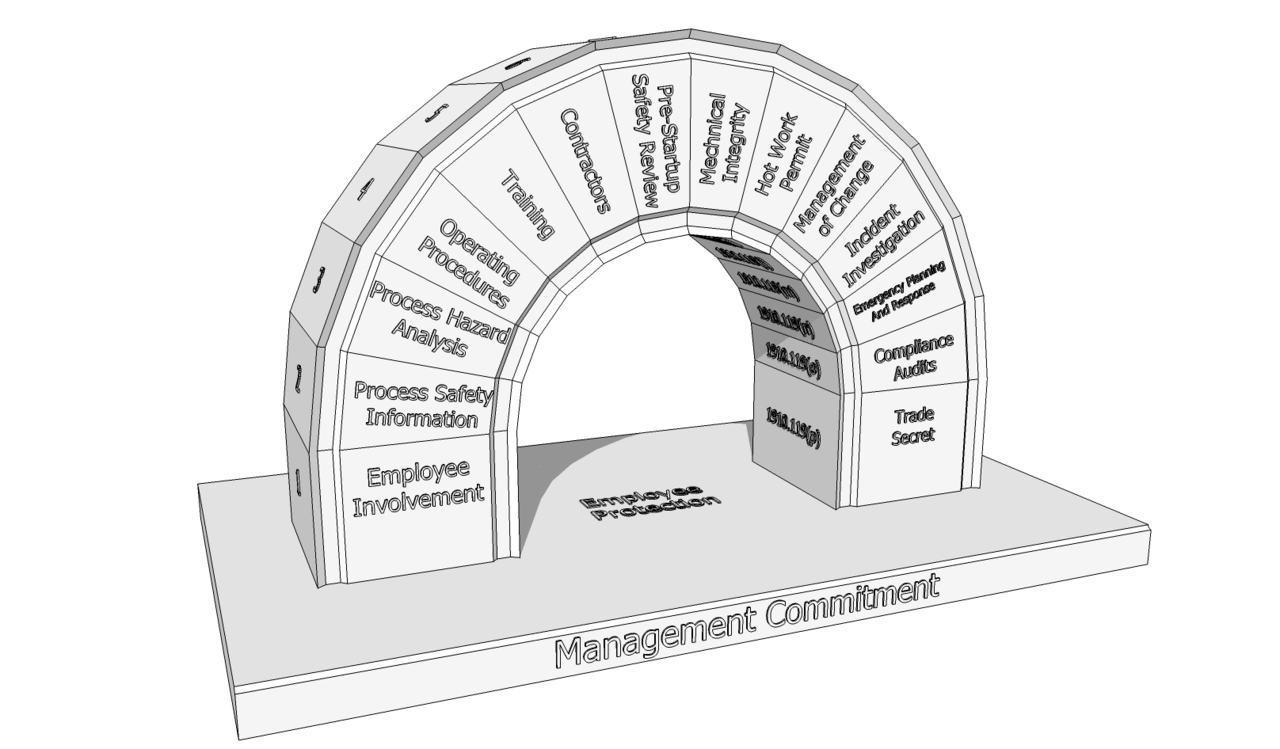Process Safety Management Support and Design
If your business processes utilize Process Safety Management (PSM) of highly hazardous chemicals, PolyScience Engineering Group has the expertise and experience to advise you on any PSM issues you may have.
A strong combination of technical expertise, best management practices and a broad employee involvement are clearly necessary to prevent or mitigate any accidents involving highly hazardous chemicals. PolyScience Engineering Group recognizes the significance of a solid PSM program and offers everything from basic to advanced PSM services within our safety services platform.
Our experienced engineers can assess the current state of your facility PSM program including compliance to both OSHA PSM and EPA's Risk Management Plan (RMP) regulations. Working with facility management and your technical staff, a comprehensive team based gap analysis or compliance audit can be structured and implemented to develop appropriate and organized actions for your program improvement.

The 14 individual aspects in a successful PSM program are shown as an arch supported overall by Management Committment.
Some of the most common discrepancies we have seen during compliance audits include:
- Outdated process safety information (PSI) – these could include documentation and/or specifications of the various safety relief systems, ventilation or flow calculations and P&IDs (process & instrumentation diagrams), for example. Site chemical inventories are also included. Facilities may have made changes to their systems without updating this documentation.
- Previous Process Hazard Analysis (PHA) issues – outstanding PHA recommendations that have not been addressed or properly closed out.
- Vague Standard Operating Procedures (SOPs) – those procedures that may be generic in nature, not equipment specific or do not include consequences of deviation. Also they may not have been reviewed or certified annually as required by the PSM Standard.
- Improper Management of Change (MOC) documentation – too often, an MOC is completed after the equipment has been installed and is operational. MOCs must be fully completed and signed off by the authorizing personnel before equipment can be turned back over to production.
- Lack of proper PSM training – PSM requires that personnel involved with the operation and maintenance of the covered systems receive both initial training and refresher training every three years.
- Gaps in audit frequency – audits may have not been conducted every three years as required by the PSM Standard or the action items that were generated from the previous audit may not have been closed out prior to the next audit cycle.
- Improper or unorganized documentation – in preparation for an audit, ensure all of your written documentation is up-to-date and in a format that is easily accessible to an auditor. The auditor will likely need to review a large amount of written procedures and drawings.
Some elements of the process are more important than others, therefore it is important to note that Process Safety Information (PSI), process hazard analysis (PHA), pre-startup reviews (PSSR) and management of change, are all very resource intensive and more complex to maintain. Again we can help you with these.
Our Process Safety Management services include:
- Performing PSM/RMP system audits. We can audit the whole system.
- Hazard And Operability Studies (HAZOP) Analysis. Arguably the most important part of a PSM program.
- Failure Mode And Effect Analysis (FMEA), a less complicated PHA.
- Check List Analysis ('What If' analysis or PSSR startup checklist).
- Fault Tree Analysis
- Complete designs of custom PSM systems from ground up (for new processes).
- 3 Day Training Course For PSM Analysis (to help companies develop their own PSM program)
- Certified PSM Coordinator to perform PHAs.
- Creation of up-to-date PFDs and P&ID drawings (on AutoCAD or compatible platform).